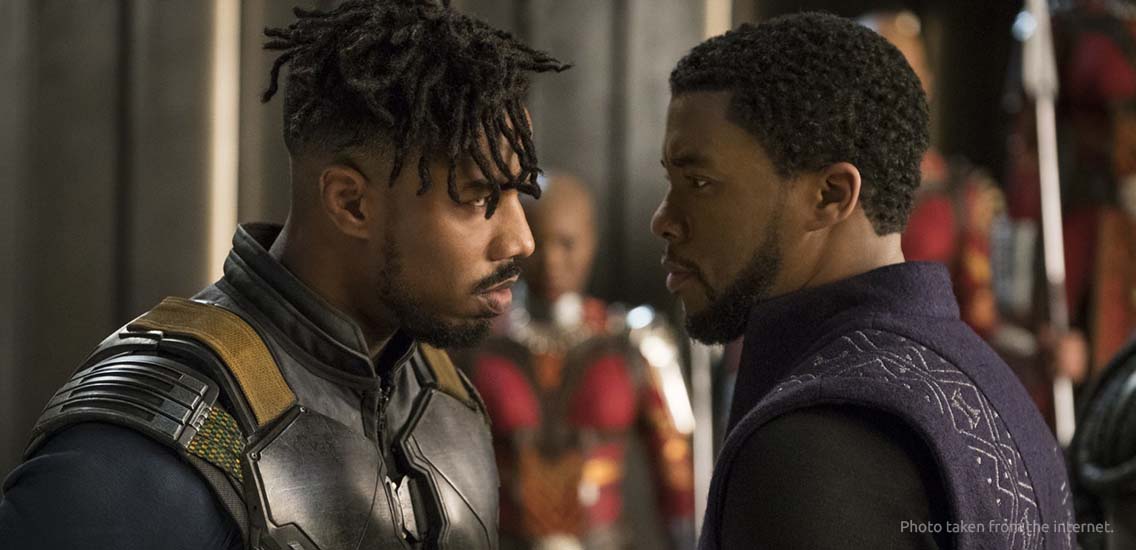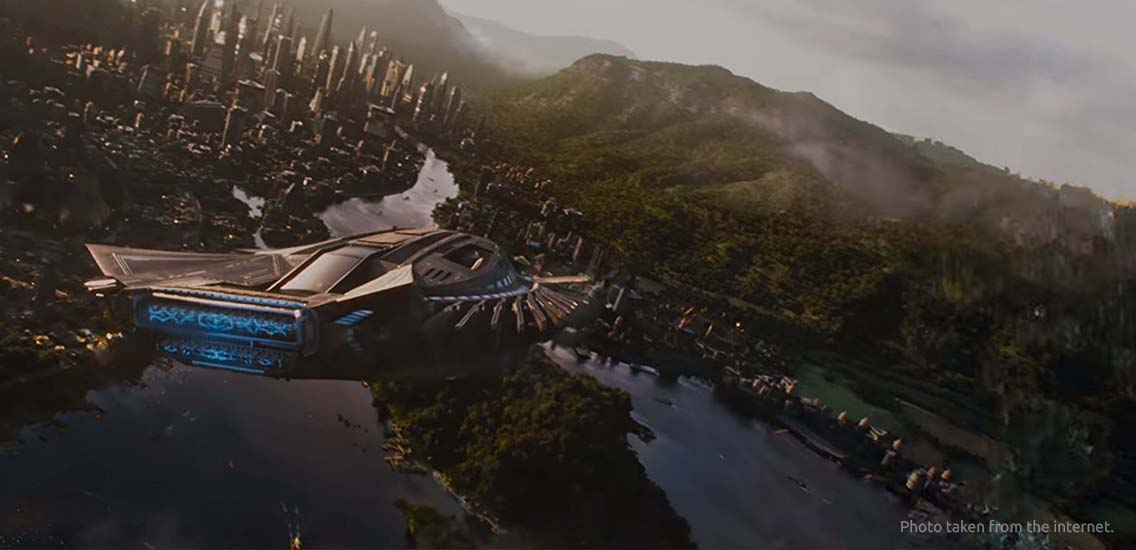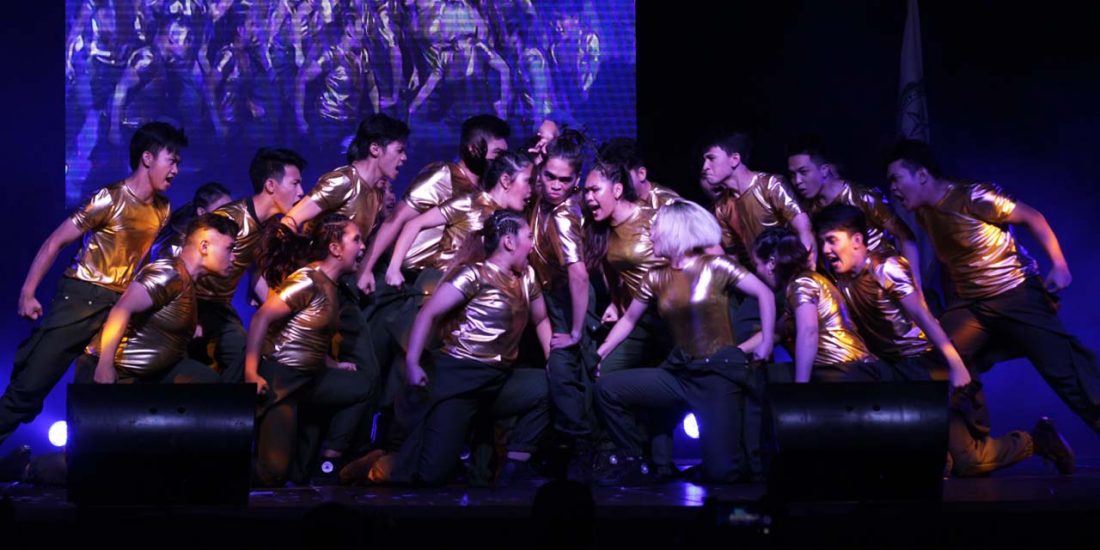Black Panther: Culturally empowering and politically savage
There have been good superheroes before, even great ones. But never has there been a superhero so powerfully relevant that neighborhoods all over America are renting out entire theatres just to make sure their kids have the opportunity to see something they never did: a black superhero proving that black stories matter. Black Panther may just be Marvel’s best film yet, not because of its powerful characters, dynamic storytelling, and awestriking world building, but because of the cultural revolution its igniting in the hearts and minds of millions of kids (and adults) around the world. Finally, we have a film that empowers the marginalized with its proud afrocentric themes.
A black superhero proving that black stories matter.
Director and screenwriter Ryan Coolger sits at the helm of this momentous phenomenon, and at his side stands Chadwick Boseman (Message to the King) as T’Challa/Black Panther, Lupita Nyong’o (Twelve Years a Slave) as Nakia, Danai Gurira (The Walking Dead) as Okoye, Letitia Wright (Ready Player One) as Shuri, and Michael B. Jordan (Creed) as Erik Killmonger. With a powerhouse cast, Coolger masterfully weaves the epic tale of T’Challa’s rise to the throne of Wakanda that incites a battle against Killmonger who seeks to rewrite the world.

While the conflict between the two men lies at the heart of the film, it’s the Wakandan women who steal almost every scene. Okoye, the fierce general of the Dora Milage (the king’s personal guard); Nakia, T’Challa’s ex-lover and warrior in her own right; and Shuri, T’Challa’s genius little sister, waste no time in leaving the men in the dust, proving that they are perfectly capable of fighting for themselves and deciding their own path—and the men, on their part, never question that. The depths of this dynamic equality between the men and women in the film are rare finds in blockbuster films, even more so in real life. (Wakanda is a fictional country after all.)
Man versus man
With Boseman, there’s no doubt that the king has arrived. From his quiet wisdom to his fierce determination to do what’s right, T’Challa steps away from the louder-than-life superheroes we’re used to in the Marvel Cinematic Universe (MCU). But the greatest superheroes need the greatest supervillains to bring out the best in them, and that’s where Erik Killmonger steps in. Jordan’s portrayal of Killmonger sets him apart from the mostly forgettable roster of supervillains in the MCU, mainly because from time to time, audiences might question if he’s really the villain after all. Unlike other supervillains who mainly seek world domination, human suffering, the apocalypse and what not, Killmonger’s mission has more purpose: to right the wrongs of a race long oppressed. But unlike T’Challa, his idea of a reckoning is inverting the world order—turning the oppressors into the oppressed, and essentially becoming the nightmare he seeks to overthrow.
“The sun will never set on the Wakandan Empire,” says Killmonger in an eerie parallel to the European colonial empires that enslaved and oppressed millions.

After observing the harrows of injustice and legacy of slavery on the lives of black Americans, Killmonger stands on the opposite end of the spectrum from T’Challa who was raised in a land that relished in African ancestry. Two men of two worlds, far apart yet undeniably connected: one man nurtures pure rage at the disadvantages imposed on his people, and the other man embodies what can become of a people who are given freedom and opportunity. It’s a portrayal that hits too close to home, but it also reminds us that there is no black and white solution to deep-seated pain.
“Bury me in the ocean with my ancestors who jumped from ships, ’cause they knew death was better than bondage.”
Molded by society to think that there can only be conquerors and the conquered, Killmonger’s heart nevertheless lies with bettering the lives of his people. But when faced the choice of life or death, his Oscar-worthy last line holds no punches: “Bury me in the ocean with my ancestors who jumped from ships, cause they knew death was better than bondage.”
World versus world
Surrounding this struggle is the most advanced civilization in the MCU posing as a third-world country: Wakanda. Untouched and unconquered by the perils of colonialism, Wakanda is the beacon of hope for a self-determined future built on freedom, opportunity, and potential. This is a far cry from the typical portrayals of Africa as a land for the oppressed rather than a heritage to be proud of. Balancing tribal traditions and technology, Wakanda’s appeal is its empowered community that prospered primarily from its freedom from colonial rule and western influence. The film stays ardently loyal to the story’s roots with everything from the costumes to the languages sticking firmly by African authenticity. Yet while this isolated pseudo-tribal society enjoys its development, the outside world is ravaged by the poverty, injustice, and inequality.
Wakanda is the beacon of hope for a self-determined future
Wakanda represents both what we aim to be and what we’ve become: an advanced nation that civilization can accomplish, and a people who watched from the shadows and refused to act when the world fell apart. It’s only towards the end that filmgoers are taught the transcendent lesson of never standing by as others suffer—a cutting call to action against universal government inaction.
From reaching out to African-American children in the afterhours of the Black Lives Matter movement to being an allegory of the utopia that all communities aim for, Black Panther is the most relevant and politically savage superhero film you’ll likely ever see. It’s precisely because of this that there’s no doubt that the film will resonate with every race, religion, and community around the world, as everyone wins when the marginalized are empowered. With motifs such as slavery, oppression, and unworthy leaders, the film ends on a note that resounds with every culture in the world, black or not: Be better than your oppressors.

Finally, in cinema, a man of color is not represented as a victim of his circumstances but as a hero for the people. Representation in media is so crucial in shaping the minds of young people, so when films like the Black Panther come out, it gives kids the idea that people of color can save the day too.
Black Panther is the most relevant and politically savage superhero film you’ll likely ever see.
In this increasingly divisive society the world has become, films like this matter. They score our hearts by reminding us of the potential of humanity to do real good. T’Challa phrases it best with an ode to an old African proverb: “We all know the truth: more connects us than separates us. But in times of crisis, the wise build bridges, while the foolish build barriers. We must find a way to look after one another as if we were one single tribe.”
As Okoye’s battle cry goes, Wakanda forever.
“In times of crisis, the wise build bridges, while the foolish build barriers.”
***
Also check out Black Panther: The Album, the film’s soundtrack produced and inspired by yet another king, Kendrick Lamar.



